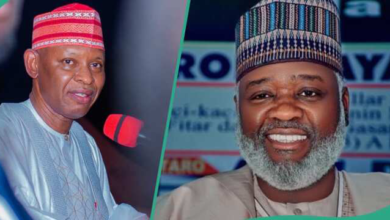NLC Strike Update: NLC to Embark on Strike on Wednesday Over Fuel Subsidy Removal – All You Need to Know

The Nigeria Labour Congress (NLC) has declared a nationwide strike starting from next Wednesday due to the removal of fuel subsidy by President Bola Tinubu. This article will provide an in-depth analysis of the NLC strike update, including its causes, consequences, and potential outcomes. We will also explore the background of the fuel subsidy removal and its implications for the Nigerian economy.
Background of the Fuel Subsidy Removal
The Announcement by President Bola Tinubu
During his inaugural speech on Monday, May 29, 2023, President Bola Tinubu announced the removal of the fuel subsidy, stating that “subsidy is gone.” Despite claims by the president’s image makers that he was misquoted by some sections of the media, the announcement led to panic buying and a sharp increase in the pump price of petrol across the country.
New Pump Prices Announced by NNPC
On Wednesday, May 31, 2023, the Nigerian National Petroleum Company Limited (NNPCL) announced new pump prices according to states. This move further fueled the tension between the government and the NLC, leading to a deadlock in negotiations between the two parties.
The NLC’s Response to the Fuel Subsidy Removal
Emergency National Executive Council Meeting
In response to the fuel subsidy removal and the subsequent increase in the pump price of petrol, the NLC held an emergency National Executive Council (NEC) meeting in Abuja on Friday. The NEC comprises all Presidents, General Secretaries, Treasurers of all NLC’s affiliate unions; State Chairpersons and Secretaries of the NLC State Councils; Chairperson of the NLC Youth Committee, and members of the National Administrative Council (NAC).
Declaration of Nationwide Strike
Following the NEC meeting, the NLC announced that it would embark on a nationwide strike starting from Wednesday next week if the Nigerian National Petroleum Company Limited (NNPCL) fails to reverse the new pump price for the Premium Motor Spirit (PMS). The national president of the NLC, Joe Ajaero, directed all state councils and industrial unions to commence mobilization efforts immediately.
Implications of the Strike for the Nigerian Economy
Disruption of Economic Activities
The NLC strike update indicates that the nationwide strike could have a significant impact on Nigeria’s economy. A prolonged strike could disrupt economic activities across various sectors, including transportation, manufacturing, and public services. This could lead to reduced productivity, job losses, and a decline in the overall economic growth of the country.
Inflationary Pressure
The removal of the fuel subsidy and the subsequent increase in the pump price of petrol are likely to cause inflationary pressures in the Nigerian economy. A higher cost of fuel will result in increased transportation costs, leading to higher prices for goods and services. This could further exacerbate the already high inflation rate experienced in Nigeria.
Potential Foreign Investment Loss
The ongoing uncertainty surrounding the fuel subsidy removal and the NLC strike update could deter potential foreign investors from investing in Nigeria’s economy. A lack of foreign investment could hinder the country’s economic growth and development, as well as affect its ability to generate much-needed revenue.
Government’s Efforts to Resolve the Crisis
Negotiations with the NLC
Some representatives of the Nigerian government have met with the NLC officials to negotiate a resolution to the ongoing crisis. However, these meetings have so far ended in a deadlock, with no clear agreement reached between the two parties.
Possible Reversal of the Fuel Subsidy Removal
As a result of the NLC strike update and the nationwide strike planned for next Wednesday, the government may consider reversing the fuel subsidy removal to avert the potential economic consequences of the strike. However, it remains to be seen whether this will be enough to appease the NLC and prevent the strike from taking place.
Public Opinion on the Fuel Subsidy Removal and the NLC Strike
Support for the NLC’s Position
Many Nigerians have expressed support for the NLC’s decision to embark on a nationwide strike in response to the fuel subsidy removal. They argue that the removal of the subsidy and the subsequent increase in the pump price of petrol will have a negative impact on their daily lives and the overall economy.
Criticism of the Government’s Decision
There has also been widespread criticism of the government’s decision to remove the fuel subsidy, with many Nigerians questioning the timing and the manner in which the decision was made. Critics argue that the government should have engaged in more consultations with relevant stakeholders, including the NLC, before making such a significant policy change.
Potential Outcomes of the Strike
Successful Resolution of the Crisis
If the government and the NLC can reach a mutually agreeable resolution to the ongoing crisis, the nationwide strike may be averted, and normal economic activities can resume. This could involve the government reversing the fuel subsidy removal or implementing measures to mitigate the impact of the increased pump price of petrol on Nigerians.
Prolonged Strike and Economic Consequences
However, if the government and the NLC fail to reach an agreement, the nationwide strike could continue, leading to significant economic consequences for Nigeria. In this scenario, the country may experience disruptions in various sectors, increased inflation, and potential losses in foreign investment.
Conclusion
The NLC strike update highlights the ongoing tensions between the Nigerian government and the NLC over the removal of the fuel subsidy and the subsequent increase in the pump price of petrol. With a nationwide strike planned for next Wednesday, both parties must engage in constructive dialogue and negotiations to avert the potential economic consequences of the strike. As the situation unfolds, it is crucial for all stakeholders to work together to find a satisfactory resolution to the crisis that benefits all Nigerians.














